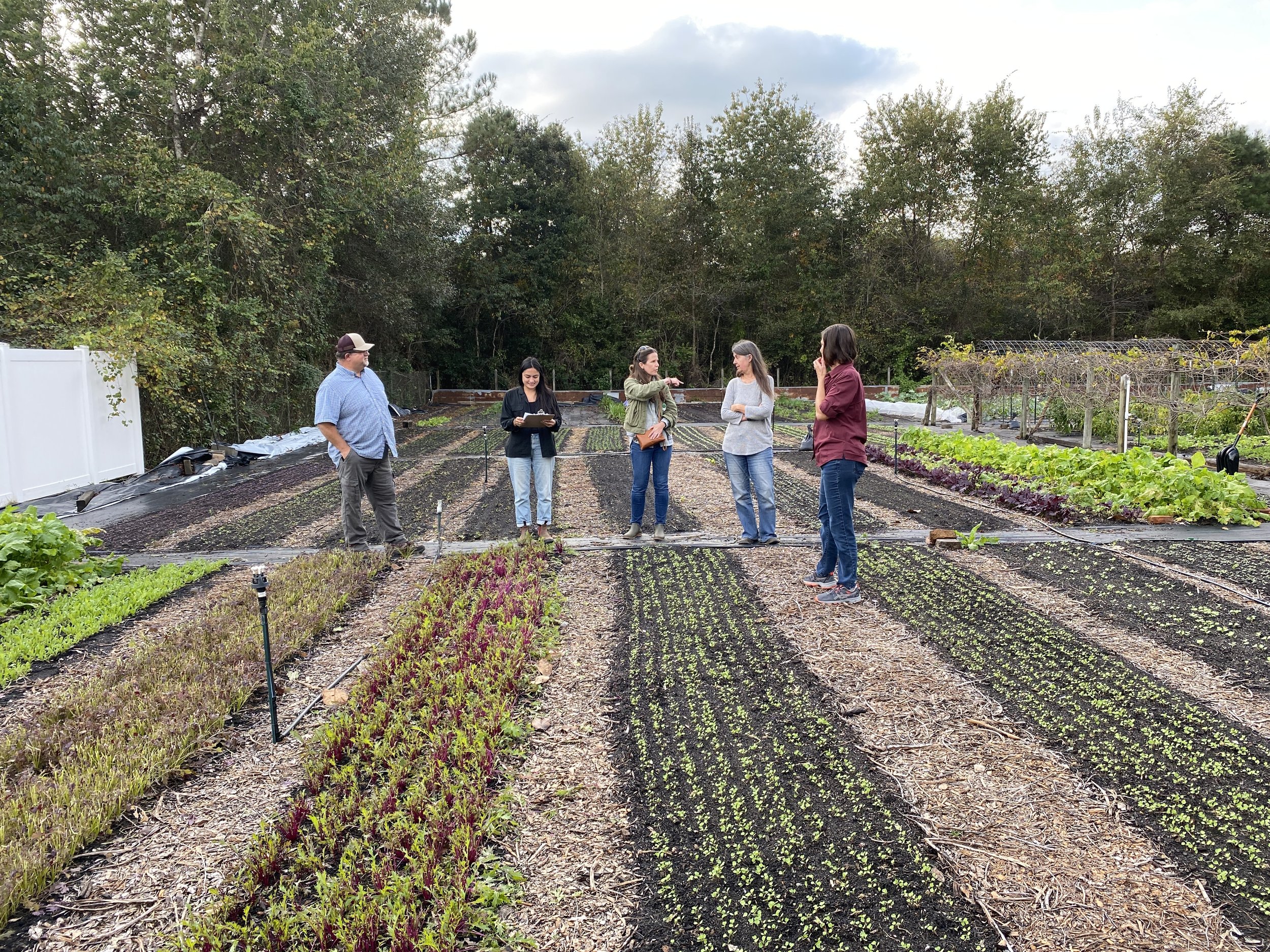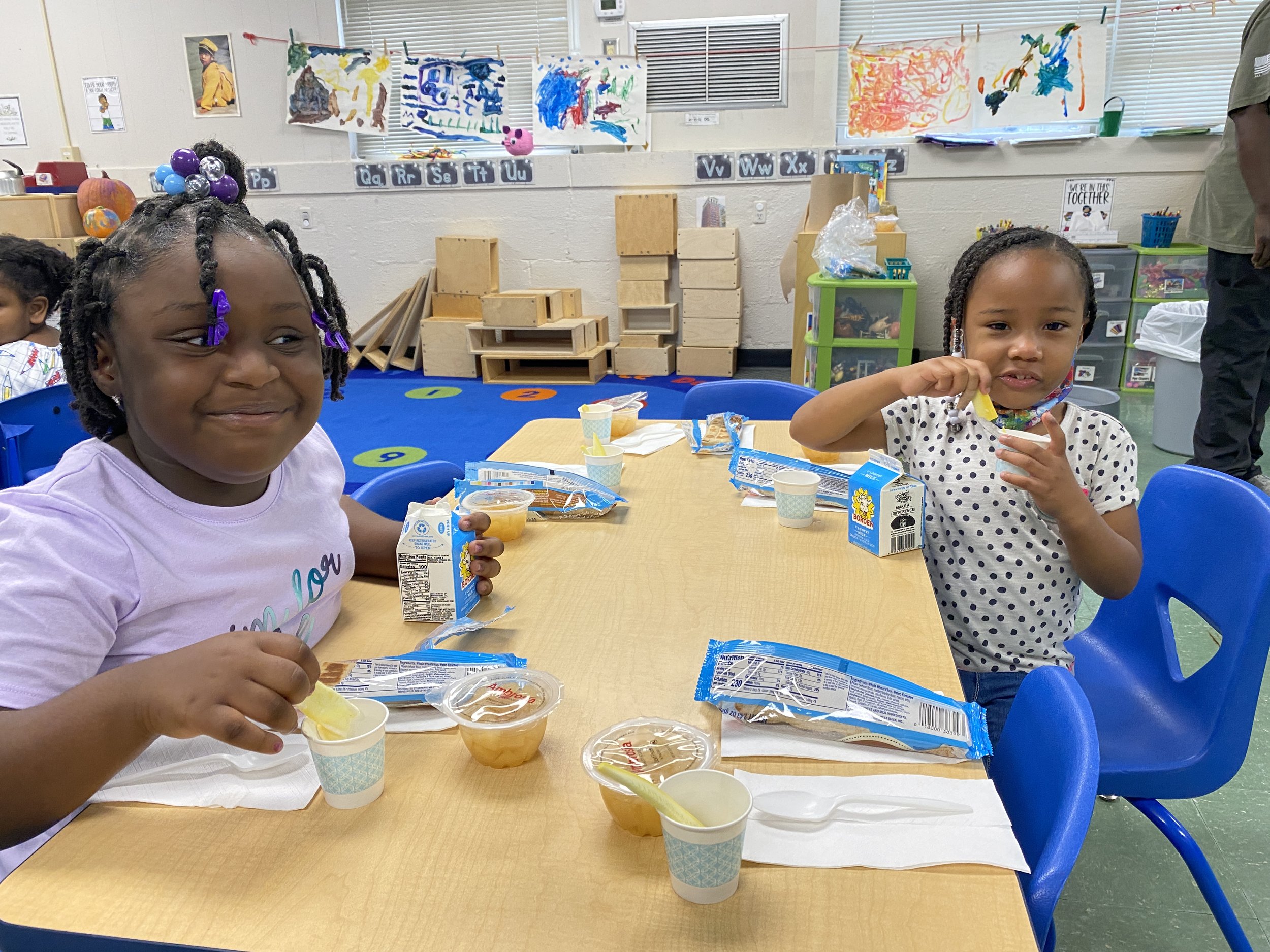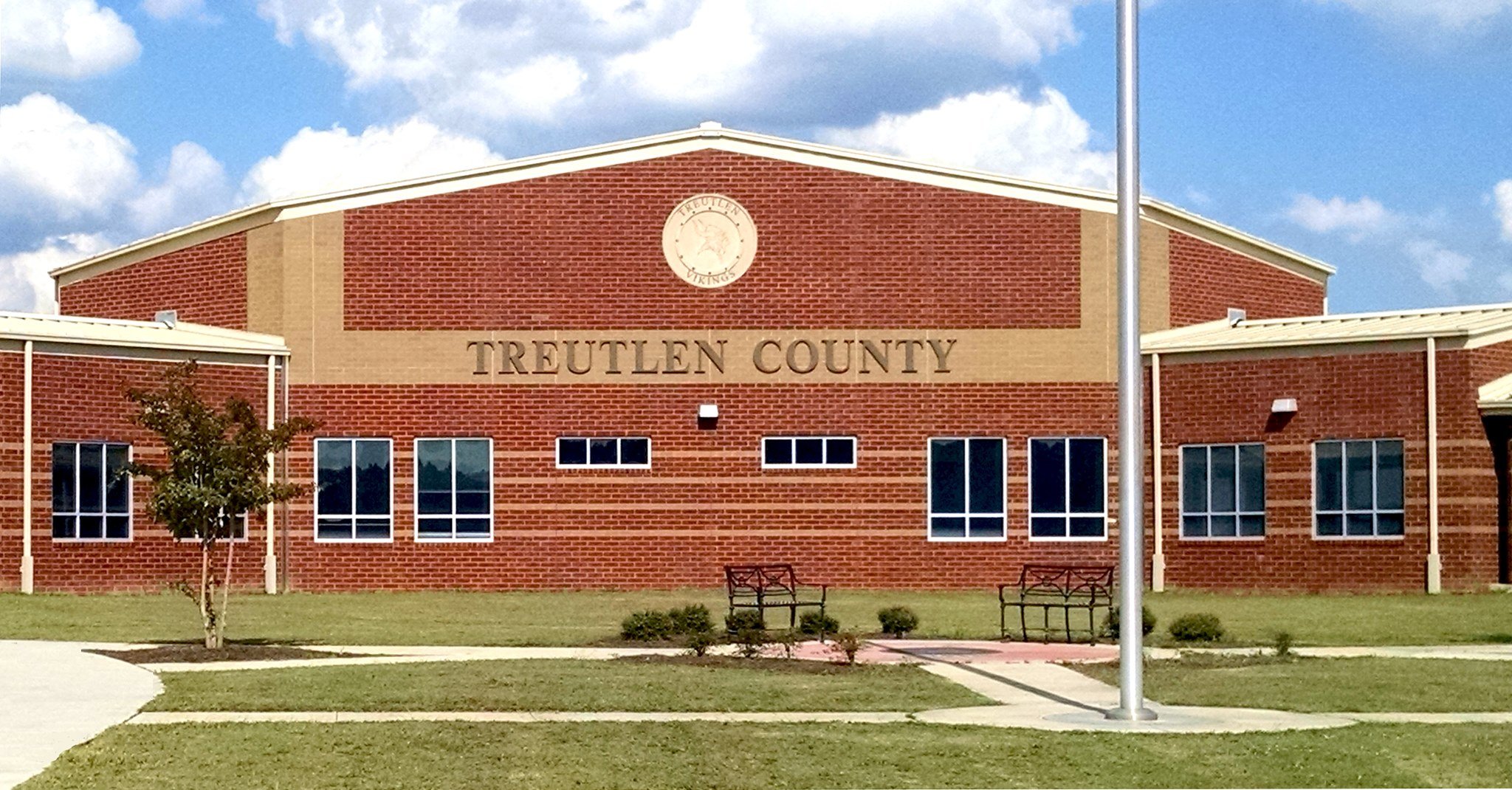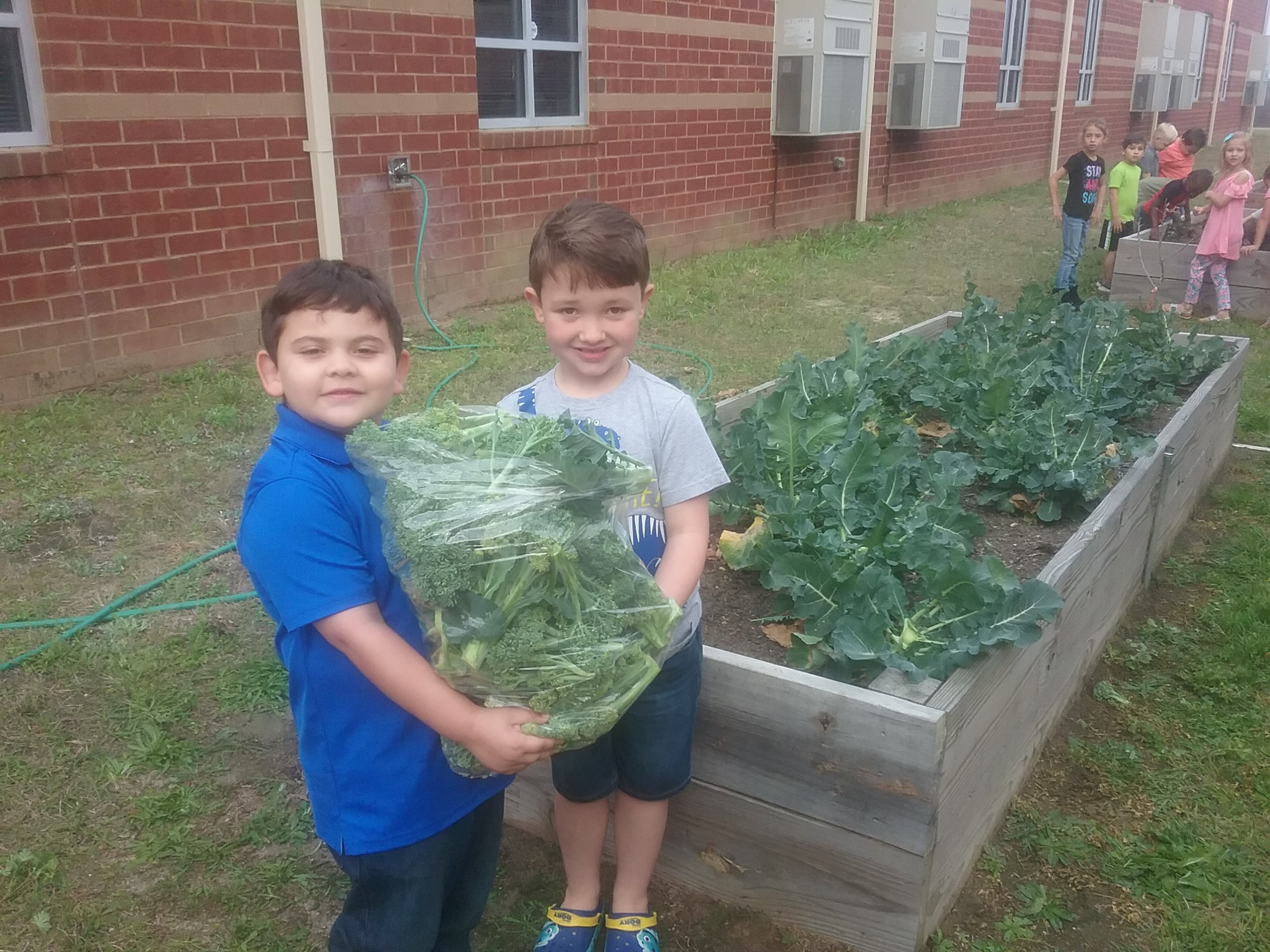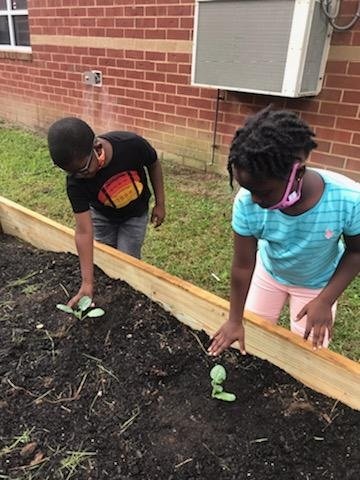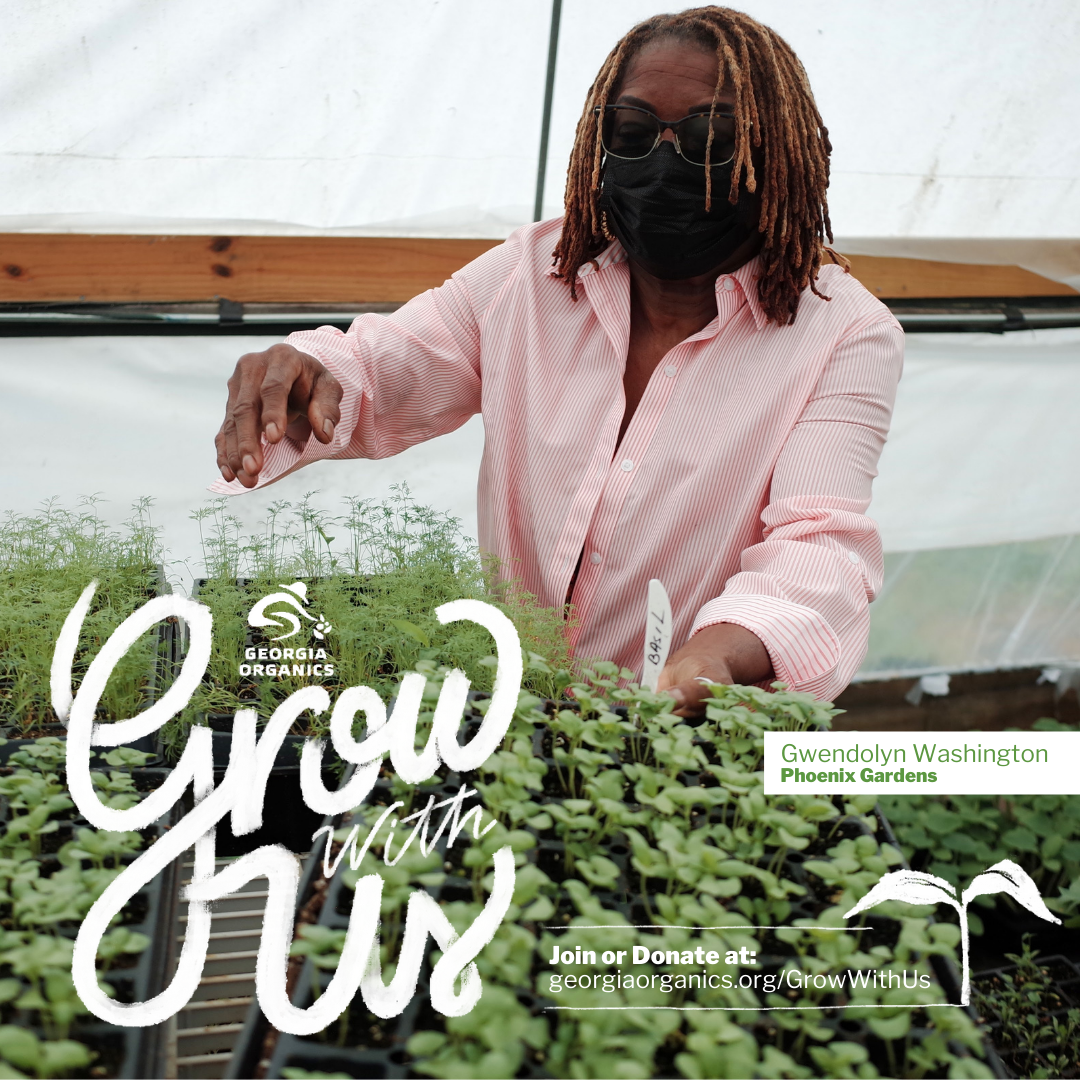By Diana Pena
Diana Pena is a CDC Public Health Associate serving as the Farm to School Coordinator at the Georgia Department of Public Health. She also supports the Georgia Farm to School team in our work to achieve Georgia Farm to School Alliance and Farm to Early Care and Education strategic plan goals
Georgia Organics and the Georgia Department of Public Health (GA DPH) have partnered to establish the Farm to School Innovation Mini Grants Program. These funds support farm to school initiatives that:
All photographs provided by Dorothy Dupree
Increase access to local, fresh, organically grown food,
Include culturally responsive food and education,
Increase local food procurement,
And/or benefit Georgia-certified organic farmers in other ways.
To learn more about the Farm to School Innovation Mini-Grant Program click here.
We are pleased to highlight Mini-Grant Awardee: Savannah Chatham County Public Schools!
School Nutrition Coordinator Dorothy Dupree is leading a farm to school project that focuses on sustainability. Innovative thinking requires identifying gaps and leveraging assets to help bridge the disparities identified. This is exactly what Dorothy Dupree’s leadership did.
Dorothy noticed that Gould Elementary School and Windsor Forest Elementary School had robust school gardens, passionate teachers, and curated hands-on lesson plans that incorporate composting/vermicomposting (use of worms to break down organic material). All they needed was extra funding to make their project come to fruition.
Dorothy is excited to share that they have completed the assembly of their new compost barrels and vermicomposting bin. Recently, Dorothy visited one of the elementary schools and conducted a hands-on compost lesson with them. She shares: “the students were able to harvest radishes out of their garden and composted radish leaves/stems in their tumbler.” They learned about “browns and greens and set up the vermicompost.”
Some of the challenges Dorothy has encountered in this project is the students’ “aversion to the worms,” but she reminds the students that the worms “won’t jump out at them.”
Dorothy shares, “I have found that students may come into these outdoor lessons with different mindsets, but by the end of the lesson they are all extremely engaged and are excited to see what they have learned in this classroom come to life.”
In the spring Dorothy and Savannah Chatham County School students will continue incorporating composting into their lessons by utilizing the book Compost Stew by Mary McKenna Siddals. The Mini-Grant funds have helped them purchase books for both schools for this project.
“It’s important to consistently elevate school gardens and farm to school initiatives as part of the toolbox in educations,” she continues.
“I believe school gardens and outdoor classrooms are essential in education and should be invested in by school districts. They provide practical, hands-on experiences that students cannot get in the classroom alone.”
Savannah Chatham County Public Schools’ Farm to School project truly merges innovation and sustainability through outdoor learning.
Check out their project in the local WJCL Savannah 22: bit.ly/SCCPSSNews
To learn more about Georgia Organics, visit georgiaorganics.org, and follow us on social media @GeorgiaOrganics and at facebook.com/GeorgiaOrganics.
To read more about Savannah-Chatham County Public School System, visit www.sccpss.com, and keep up with their Mini Grant updates at: facebook.com/SCCPSS.












